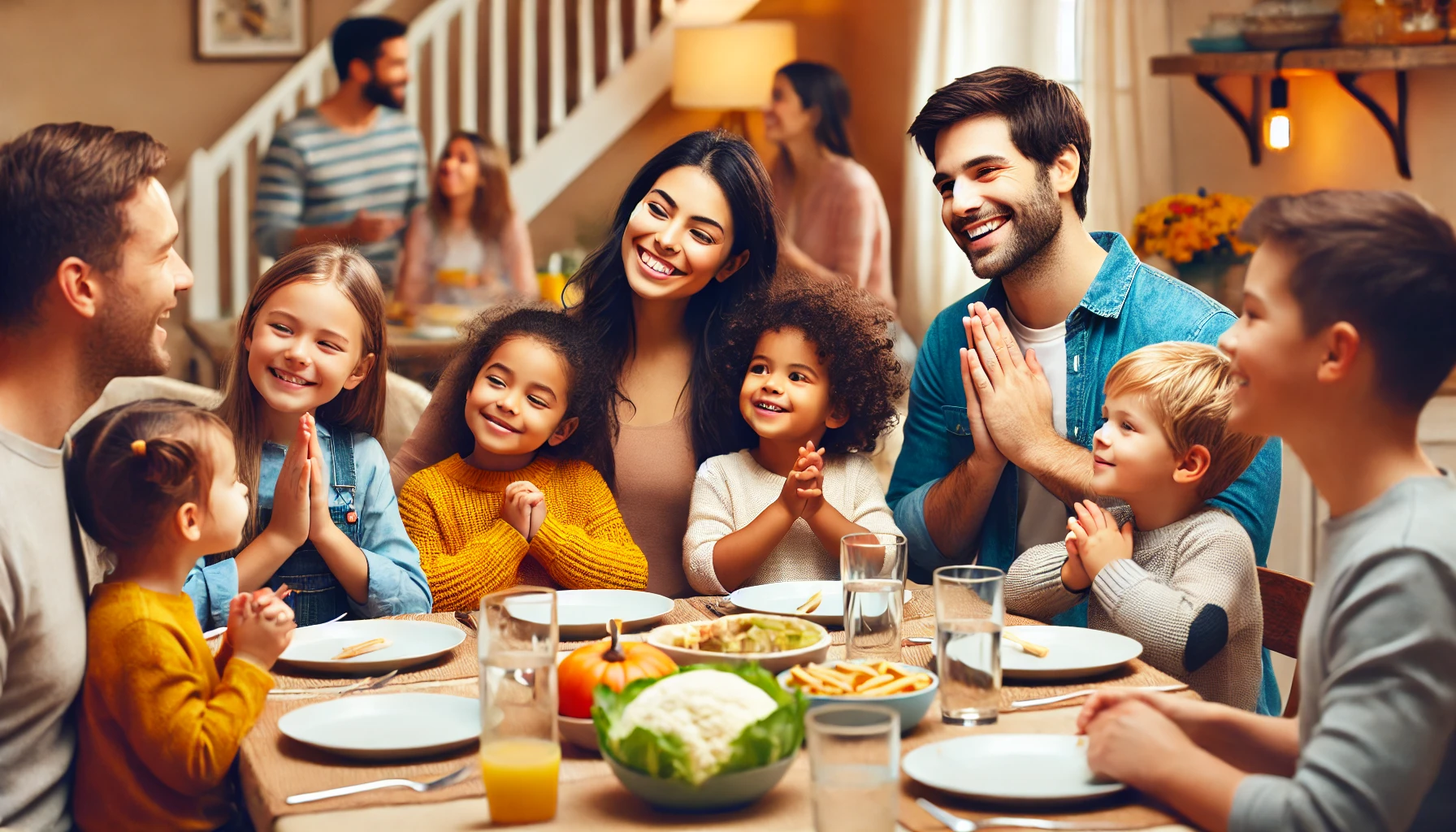In today’s fast-paced world, where children are constantly exposed to instant gratification and material abundance, teaching gratitude has never been more important. Gratitude helps kids develop empathy, build stronger relationships, and appreciate the world around them. It also fosters resilience, improves mental well-being, and helps children grow into happier, more compassionate adults.
But gratitude is more than just saying “thank you.” It’s about recognizing and appreciating the kindness, experiences, and blessings in life. In this article, we’ll explore effective strategies to teach kids gratitude and appreciation in ways that are fun, engaging, and meaningful.
Why Gratitude Matters in a Child’s Life
Gratitude is a powerful life skill that impacts a child’s emotional well-being, social skills, resilience, and sense of responsibility. Grateful kids tend to be happier, less stressed, and more optimistic. They build stronger friendships and express more kindness toward others. Appreciating what they have helps children handle challenges with a positive mindset. They also learn to value what they receive and take better care of their belongings.
Gratitude isn’t something children are born with—it’s a skill that needs to be taught, modeled, and reinforced over time.
How to Teach Gratitude to Kids
Be a Role Model
Children learn best by observing adults. If they see you expressing gratitude, they are more likely to adopt the habit themselves. Say “thank you” often—to your child, your partner, store employees, or strangers. Express appreciation out loud: “I’m so grateful for this beautiful weather today!” Show gratitude in tough situations: “This was a challenging day, but I’m grateful we’re all safe and together.”
Your child will absorb these habits and naturally begin to practice them.
Encourage Saying “Thank You” with Meaning
Teaching kids to say “thank you” is a great start, but it’s important that they understand why they are saying it. Instead of a generic “thank you,” encourage them to be specific.
For example: “Thank you for helping me with my homework, Mom! It made a big difference.” or “I really appreciate that you shared your toy with me. That was kind of you.”
By personalizing their gratitude, children develop a deeper sense of appreciation rather than just following a social script.
Create a Daily Gratitude Routine
Making gratitude a daily habit helps children reflect on the positive aspects of their lives.
One fun idea is a Gratitude Jar, where your child writes (or draws) something they are grateful for each day and places it in a jar. At the end of the month, read them together. Another idea is a Dinner Table Gratitude Practice, where during meals, each family member shares one thing they’re thankful for. A Bedtime Gratitude Routine is also effective—before bed, ask: “What was the best part of your day?” or “What made you happy today?”
This routine helps kids focus on the good things in life, even on difficult days.
Teach Gratitude Through Acts of Kindness
One of the best ways to teach appreciation is by encouraging children to give. When kids help others, they see firsthand how their actions impact others, reinforcing gratitude in their own lives.
Ideas include helping a neighbor carry groceries, donating toys or clothes to children in need, writing thank-you notes to teachers, family members, or friends, and volunteering at a shelter or community event.
By practicing kindness, kids realize how fortunate they are and learn to appreciate what they have.
Limit Materialism and Teach the Value of Things
In a world of constant advertisements and “wants,” it’s easy for kids to take things for granted. Teaching them the value of possessions can make them more appreciative.
Talk about needs vs. wants to help them understand that while it’s okay to want things, not everything is essential. Encourage saving for special items instead of instant purchases, allowing them to earn and save for things they want. Focus on experiences over things by prioritizing activities like a trip to the park or a family movie night instead of material rewards.
This teaches kids that happiness isn’t about having more things—it’s about appreciating what they already have.
Expose Them to Different Perspectives
Children may not realize how fortunate they are until they see different ways of life. By introducing them to different perspectives, they learn to appreciate what they often take for granted.
Traveling or visiting new places allows them to see different cultures and lifestyles, broadening their understanding. Watching documentaries about other communities helps build empathy. Engaging in charitable activities, such as participating in food drives or helping others, makes them aware of different realities.
These experiences deepen their gratitude for things they might have overlooked.
Encourage Gratitude Letters or Drawings
Writing thank-you notes or making gratitude drawings is a fun way to express appreciation.
A child can write a letter to grandparents thanking them for their love and stories, create a drawing for a teacher expressing appreciation for their hard work, or leave a small note for a friend acknowledging their kindness.
Expressing gratitude through words and creativity helps children internalize their appreciation in a meaningful way.
Teach Them to Find Gratitude Even in Challenges
Life isn’t always easy, and teaching kids to find something positive in difficult situations helps them develop resilience and optimism.
If they lost a game, ask, “What did you enjoy about playing?” If they had a bad day, say, “I know today was tough, but what’s one good thing that happened?” If they made a mistake, encourage, “What did you learn from this?”
This practice helps children develop a growth mindset and learn that even struggles have valuable lessons.
Cultivating a Grateful Mindset
Teaching gratitude isn’t about forcing children to say “thank you”—it’s about helping them develop an appreciative outlook on life.
By modeling gratitude, encouraging reflection, and fostering kindness, you help children develop lifelong habits of appreciation. Gratitude will not only make them happier and more fulfilled but also strengthen their relationships and contribute to a more compassionate world.
What’s something you’re grateful for today? Share it below—I’d love to hear!
